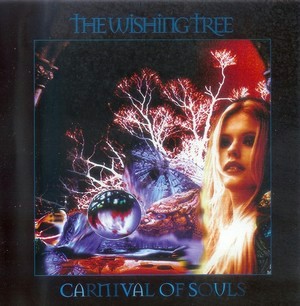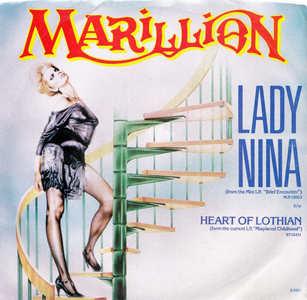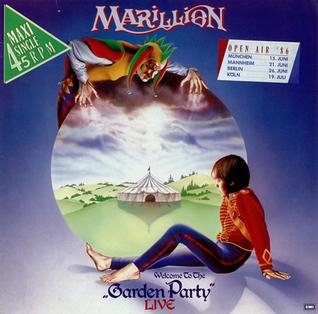
Marillion are a British rock band, formed in Aylesbury, Buckinghamshire, in 1979. They emerged from the post-punk music scene in Britain and existed as a bridge between the styles of punk rock and classic progressive rock, becoming the most commercially successful neo-progressive rock band of the 1980s.

Brave is the seventh studio album by Marillion, released in 1994. It charted at number 10 on the UK Albums Chart, being the last of the band's albums to reach the Top 10 in the United Kingdom until F E A R reached number 4 in 2016.

Peter Trewavas is an English musician, known as the bassist of Marillion. He joined in 1982, replacing Diz Minnitt, while acting as a backing vocalist and occasional guitarist.

Steve Hogarth also known as "h", is an English singer-songwriter and multi-instrumentalist. Since 1989 he has been the lead singer of the British rock band Marillion, for which he also performs additional keyboards and guitar. Hogarth was formerly a keyboard player and co-lead vocalist with the Europeans and vocalist with How We Live. AllMusic has described Hogarth as having a "unique, expressive voice" with "flexible range and beautiful phrasing".

Steven Rothery is an English musician. He is the original guitarist and the longest continuous member of the British rock band Marillion. Outside Marillion, Rothery has recorded two albums as part of the duo The Wishing Tree and an instrumental solo album, The Ghosts of Pripyat, released in September 2014. He also founded the British Guitar Academy in 2011.

Seasons End is the fifth studio album by British neo-progressive rock band Marillion, released in 1989. The album was the first to feature current lead vocalist Steve Hogarth, following the departure of former vocalist Fish in late 1988. It reached number 7 on the UK Albums Chart.

A Singles Collection is a compilation album of Marillion singles from both the Fish era and the Steve Hogarth era, celebrating the band's ten-year jubilee. It includes the band's six most successful singles of the Fish era, plus all six Steve Hogarth singles up to that year.

Afraid of Sunlight is Marillion's eighth studio album, released in 1995. It was their last for EMI.

Radiation is the tenth studio album by the British neo-progressive rock band Marillion, released in 1998. Recorded at The Racket Club between November 1997 and June 1998, it was co-produced and mixed by Stewart Every. The album was remixed by Michael Hunter in September to November 2012 and a reissued remastered version was released in 2013.

"Assassing" is a song by the British neo-progressive rock band Marillion. It was the second single from their second studio album, Fugazi (1984). The single reached no. 22 on the UK singles charts in May 1984. The 7" single's title track is a heavily edited version of the first track on Fugazi, with a length of 03:39 as opposed to the album version with 07:01. The B-side is the non-album track "Cinderella Search".

Enchant is an American neo-progressive rock band, formed in 1989. Their music is characterized by ambitious lyrics and melodies along with harmonic experimentation.

Carnival of Souls is the title of the first album by The Wishing Tree, a project by Marillion's guitarist Steve Rothery and singer Hannah Stobart. It was originally released in 1996 on Steve Rothery's short-lived label Dorian Music and was re-released in 2001 on Marillion's label Racket Records. The new version includes some bonus material, two live videos and two demos of previously unreleased songs.
John Helmer is a musician and part-time writer best known for contributing lyrics for Marillion.

Ostara is the title of the second album by The Wishing Tree, a project by Marillion's guitarist Steve Rothery and singer Hannah Stobart. The album was produced and engineered by Rothery and mixed by Michael Hunter, who also produced the two most recent Marillion albums. Hunter also contributed additional keyboards and percussion. The artwork is by Spanish artist Antonio Seijas, who had created the artwork for Marillion's Happiness is the Road (2008). Rothery's wife Jo and daughter Jennifer are credited for additional backing vocals and cover design, respectively. The drummer is Hannah's husband Paul Craddick.

Lady Nina is a song by the British neo-progressive rock band Marillion. First released in 1985 on the B-side to the #2 UK hit single "Kayleigh", it was the only single from the EP Brief Encounter released in the United States by Capitol Records in April 1986. A music video was also shot to promote it. While the EP climbed to #67 on the Billboard 200 album charts, "Lady Nina" did not make the Billboard Hot 100, but did reach #30 on the Mainstream Rock charts.

"Heart of Lothian" is a song by British neo-progressive rock band Marillion. It is the fifth track on the 1985 concept album Misplaced Childhood. The song was released as the third single from Misplaced Childhood on 18 November 1985 in the UK, the Netherlands, West Germany, Canada, South Africa and Australia. "Heart of Lothian" became the third Top 30 UK single from Misplaced Childhood, peaking at number 29. The song also peaked at number 51 on the German singles chart.

"Welcome To The Garden Party‘" is a 1986 single by British neo-progressive rock band Marillion released exclusively in West Germany to accompany a series of concerts the band played at festivals in that country as second bill to Queen, following their commercial breakthrough with the album Misplaced Childhood and the hit singles "Kayleigh" and "Lavender" the year before. The single was released on 7" and 12" vinyl; neither version contained any new or previously unreleased material. The 7" and 12" versions contained completely different recordings from each other. The A-side, "Garden Party", originally the second single from the band's debut album, Script for a Jester's Tear, had reached #16 on the UK Singles Chart in 1983, but—like all Marillion singles before "Kayleigh"—had failed to chart in Germany. However, the single received little airplay and failed to enter the German top 100.

"Hooks in You" is the first single from British rock band Marillion's fifth album Seasons End, released in 1989. It was the first single to feature lead singer Steve Hogarth, who joined the band the same year, replacing Fish.

Edison’s Children are a science fiction-oriented progressive rock trio, featuring Rick Armstrong, Pete Trewavas and Eric Blackwood.

"Don't Hurt Yourself" is the second single from Marillion's 13th studio album Marbles, released on 12 July 2004. Following the band's comeback to the upper regions of the UK Singles Chart with the previous single "You're Gone" in May, it reached number 16, becoming their second-highest charting hit since 1987's "Incommunicado". As with "You're Gone", the chart success of this single was largely based on making it available in two formats and encouraging fans to buy them simultaneously in the first week after their release. It also reached a top 40 position in the Dutch charts.



















